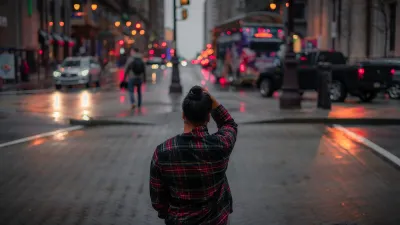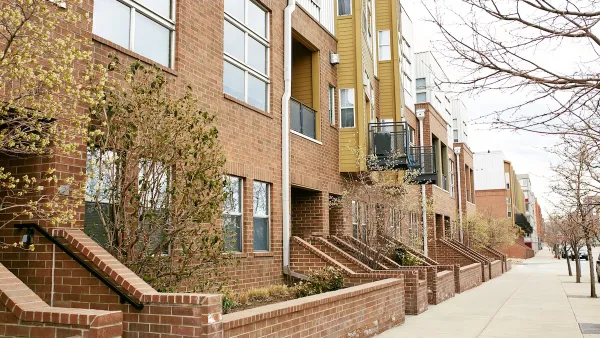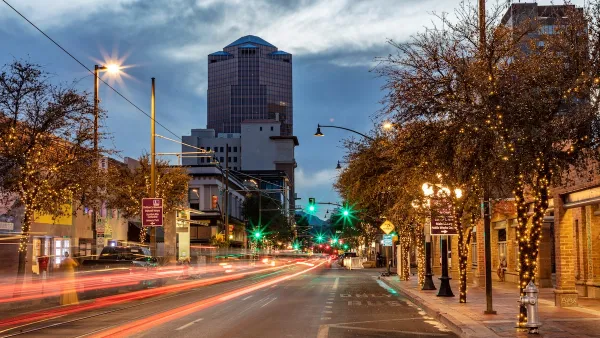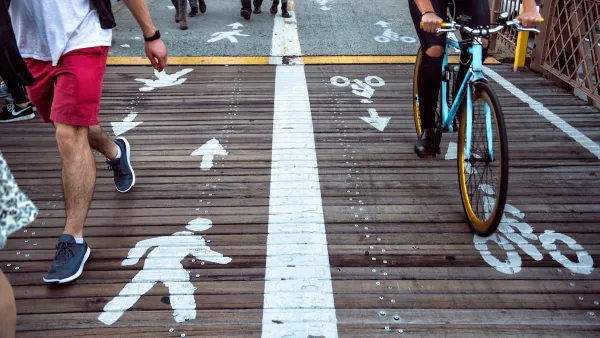American pedestrians are moving faster and spending less time connecting with other people when walking down city streets.

American pedestrians are spending less time hanging out on sidewalks and streets, according to a new study from the National Bureau of Economic Research.
As David Zipper explains in Bloomberg CityLab, the researchers used artificial intelligence to analyze video footage from 1980 and 2010, noticing that people walk faster and spent less time interacting than they used to. “They seemed to be having fewer of the informal encounters that undergird civil society and strengthen urban economies.”
While the analysis doesn’t explain why behavior patterns have changed, the researchers offered several possible explanations. “City dwellers might be having fewer social interactions of all kinds, a phenomenon that has been linked to rising rates of loneliness. And some of the pedestrians observed in 2010 could have been socializing remotely: By then, 80% of US adults had cellphones.”
People may also be using more commercial third spaces like coffee shops and bars to socialize, particularly in places where public space is not comfortable or inviting. This leads to people spending more time around people who are similar to them, sharing similar economic backgrounds and experiences.
For the researchers, the shift is troubling. “Beyond creating personal connections, human exchange fuels economic productivity as people figure out how to do their job more efficiently or find inspiration for a new venture. Benefits reverberate citywide, and even across society writ large.”
FULL STORY: What Happened to Hanging Out on the Street?

Analysis: Cybertruck Fatality Rate Far Exceeds That of Ford Pinto
The Tesla Cybertruck was recalled seven times last year.

National Parks Layoffs Will Cause Communities to Lose Billions
Thousands of essential park workers were laid off this week, just before the busy spring break season.

Retro-silient?: America’s First “Eco-burb,” The Woodlands Turns 50
A master-planned community north of Houston offers lessons on green infrastructure and resilient design, but falls short of its founder’s lofty affordability and walkability goals.

Test News Post 1
This is a summary

Analysis: Cybertruck Fatality Rate Far Exceeds That of Ford Pinto
The Tesla Cybertruck was recalled seven times last year.

Test News Headline 46
Test for the image on the front page.
Urban Design for Planners 1: Software Tools
This six-course series explores essential urban design concepts using open source software and equips planners with the tools they need to participate fully in the urban design process.
Planning for Universal Design
Learn the tools for implementing Universal Design in planning regulations.
EMC Planning Group, Inc.
Planetizen
Planetizen
Mpact (formerly Rail~Volution)
Great Falls Development Authority, Inc.
HUDs Office of Policy Development and Research
NYU Wagner Graduate School of Public Service




























